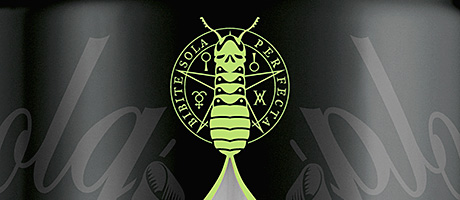Interest in provenance helps small-batch brands flourish

GROWING consumer interest in the quality and provenance of food and drink seems to be paying dividends for boutique brands.
Producers and suppliers contacted by SLTN said a general shift towards locally-sourced and produced ingredients is extending to spirits – to the benefit of small-batch brands.
Dan Bolton, managing director of Hi-Spirits, whose portfolio includes Antica sambuca, Buffalo Trace bourbon and Broker’s gin, said the story behind a brand is an “essential part of its appeal”.
“Consumer interest in traditional production methods, natural ingredients and artisan producers has never been higher,” he said.
“Alongside products such as local and regional foods and craft beer, boutique spirits brands are an important part of the food and drink movement.”
It’s a view shared by Viv Muir of NB Gin, who said consumers are seeking “variety, quality and something which has a different ‘story’ to the mainstream brands” when it comes to spirits.
“People may be drinking less but they’re more discerning about quality and are seeking out interesting hand-crafted brands which they can enjoy not just themselves but become rather evangelical about,” she said.
“The quality of the product is paramount as you want it to become people’s drink of choice, not just something they try once. However, the story behind the drink and provenance are extremely important too.”
The story behind boutique brands is “what makes them boutique”, according to Karen Stewart of Wemyss Malts, whose brands include Darnley’s View gin. “Curious consumers will experiment and enjoy trying new brands and, having engaged with the story, will be more likely to share with their friends,” she said.
Michael Lovedale, director at Glasgow-based supplier Hotsauce Drinks, said consumer interest in the provenance of food and drink has played a key role in the growing demand for boutique brands.
“People are more knowledgeable than ever; and people are going out less and are more judicious with what they buy, which means demanding better, more artisan products,” he said.
“Operators can differentiate their outlet from the competition, make higher margins and, above all, provide a reason to go out by providing drinks that are not readily available at home.”
The benefits of stocking boutique brands seem pretty clear.
But with a growing number of small-batch products across all drinks categories on the market, how should operators go about deciding which ones to put on their gantries?
According to Lovedale, licensees shouldn’t underestimate their customers.
“Consumers are increasingly clued up and willing to try new things,” he said.
“Stick to a small selection of brands that offer a clear difference from your house pour, and make sure your staff know how they taste.
“The key is offering value to customers, and to look at incremental margin gains. In choosing, ask yourself whether it’s better value paying an extra 50p for a measure of brand X against brand Y.”
Angus Russell of Inverarity Morton’s premium brands team said operators who stock boutique brands stand to reap the benefits.
“Consumers are looking for more bang for their buck and quantity isn’t always the answer,” he said.
“People may be going out less, but when they do they want to make a memorable event of it and often that means turning to something new and trading up on the standard house pour.”





















